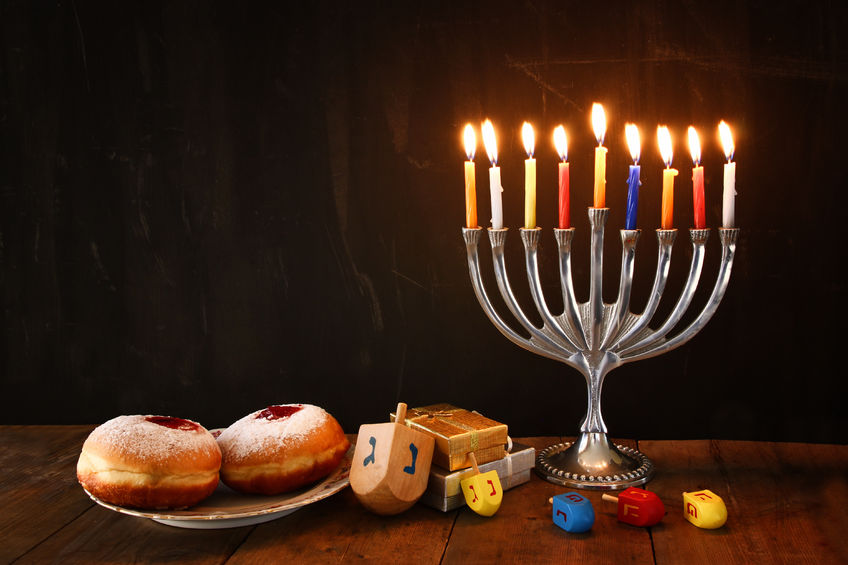 By: Rabbi Bryan Kinzbrunner, BCC
By: Rabbi Bryan Kinzbrunner, BCC
Director of Religious and Spiritual Services
Recently, looking back on Hanukkah pictures from 2019, I was feeling a sense of longing for a time when we could be together, maskless, smiling and enjoying this joyous time. Each night, lighting candles, bringing brightness into the dark winter nights, we celebrated and made the winter less dreary. This year, we find our lives in the continued state of flux during this pandemic. And yet, here we are, ready to celebrate the Festival of Lights, longing, hoping, that the lights of the menorah can be a symbol for a brighter tomorrow.
The ritual of lighting candles begins the first night of Hanukkah with a single candle lit. Each night thereafter we light one additional candle each night until we have a fully lit menorah on the eighth and final night. This practice, as described by Beit Hillel (the house of Hillel) in Tractate Shabbat 21b, is based on the concept of “One elevates to a higher level in matters of sanctity and one does not downgrade.” Among the many ways to understand this philosophy, there is another Talmudic passage that can enhance our reading of why we practice Hanukkah lighting in this manner.
Pesachim 2a begins the Talmudic tractate about the laws of Passover with a debate about the use of the word light to refer to night instead of day with regards to when one searches one’s home for chametz on Passover. In the Talmud’s search for at least one biblical example of the word Ohr (light) being used to mean something other than day, the Sages expound on different ways the word light is used in the Bible. Among the passages is the following:
The Gemara raises an objection from another verse: “And as the light [or] of the morning, when the sun rises, a morning without clouds; when through clear shining after rain the tender grass springs out of the earth” (II Samuel 23:4). Apparently, or is day. The Gemara rejects this proof as well: Is it written that the light was morning? “As the light of the morning” is written, and this is what the verse is saying: And as brightly as the morning light of this world shines at its peak, so will be the rising of the sun for the righteous in the World-to-Come, as in those days the light of the sun will be seven times stronger than at present (see Isaiah 30:26).[1]
There exists a belief among the Sages that two types of light exist. There is the light we experience, emanating from the Sun, and the redemptive light of a future, utopian time. The light of this world is a glimpse at the more precious, sacred light of the “world-to-come.”
Regarding Hanukkah, one can suggest that we act out this hope for increased revelation of light through the process of how we light our candles. By adding an additional candle each night, we are symbolically bringing increased light into the world until we completely light the menorah on the eighth night, symbolizing brighter days ahead.
In our current, continued global pandemic world, life can seem very dark. These months have been a time of grief and sadness, both communally and individually. We have not been able to mourn and grieve in the ways we are accustomed to nor have we been able to celebrate holidays with the same warmth and enjoyment of just one year ago. Yet, most of us have found creative ways to adapt to these difficult days, uplifting our spirits and adding a little light into our lives.
The message of Hanukkah is that it begins with a small light. The first light is not the be all and end all, but it is the opening we need to experience increased joy. When the Maccabees are said to have found enough oil for only a single day, they didn’t despair but lit the Menorah anyway. They didn’t say, ‘well if it won’t last, why start?’ They went ahead and used the oil they found. The miracle is that the first step opened the door to brighter and brighter days.
During this holiday season, may each of us find renewed strength and spirit. May our lighting Hanukkah candles uplift us and brighten our path during these most challenging of times and may they be a harbinger of better times on the horizon.

